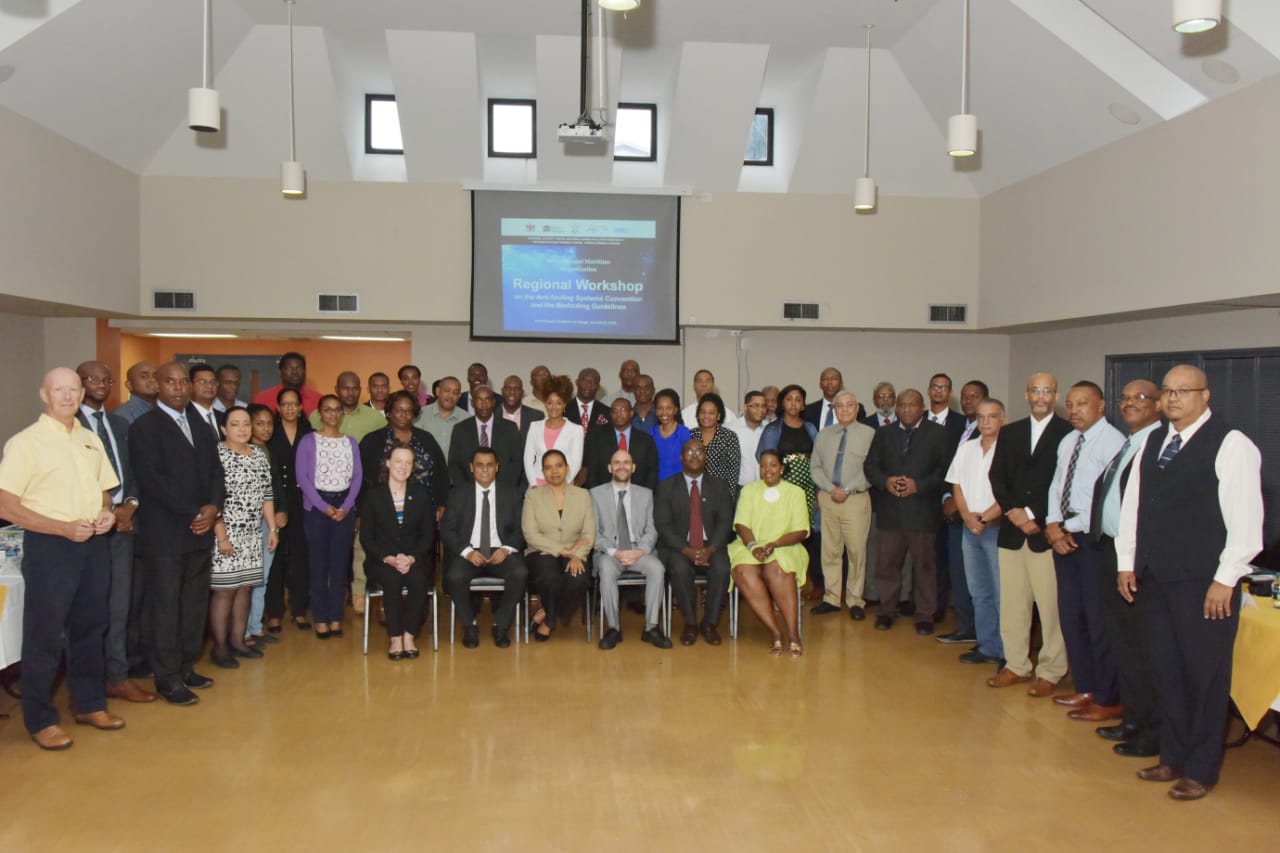

Intro
The Director of Maritime Affairs (Mr. Christopher Alexander) along with Ms. Gillian Vidal Jules Director of Legislative Drafting attended an International Maritime Organization (MO) workshop in Trinidad and Tobago during the month of June 2018. The regional forum with fifteen (15) Caribbean member states, focused on biofouling and specifically, raising awareness of the issues and the developed capacity for the ratification and implementation of the Anti-fouling Systems (AFS) Convention and the implementation of the Biofouling Guidelines.
The AFS Convention prohibits the use of harmful organotins in anti-fouling paints used on ships and establishes a mechanism to prevent the potential future use of other harmful substances in anti-fouling systems. Under the terms of the AFS Convention, Parties to the Convention are required to prohibit and/or restrict the use of harmful anti-fouling systems on ships flying their flag.
The AFS Convention prohibits the use of harmful organotins in anti-fouling paints used on ships and establishes a mechanism to prevent the potential future use of other harmful substances in anti-fouling systems. Under the terms of the AFS Convention, Parties to the Convention are required to prohibit and/or restrict the use of harmful anti-fouling systems on ships flying their flag.
All ships can experience a build-up of aquatic organisms on their underwater hull and structures, which is known as biofouling. This can impact on the ship speed and energy use, but it could also potentially see aquatic organisms transferred to new areas, where they could become invasive species.
History
The International Maritime Organization (IMO), for its part, has acted to regulate anti-fouling systems, in order to prevent adverse impacts from the use of anti-fouling systems and the biocides they may contain and has also adopted guidance to focus on how biofouling should be controlled and managed to reduce the transfer of invasive aquatic species.
The Director attributed the importance of the workshop in respect to the Saint Lucian flagged ships that may venture on an international voyage to a respective country that is signatory to the Convention and will be mandated to adopt the measures stipulated.
The Director attributed the importance of the workshop in respect to the Saint Lucian flagged ships that may venture on an international voyage to a respective country that is signatory to the Convention and will be mandated to adopt the measures stipulated.
It has roots in a piece of classical Latin literature from 45 BC, making it over 2000 years old. Richard McClintock, a Latin professor at Hampden-Sydney College in Virginia, looked up one of the more obscure Latin words, consectetur, from a Lorem Ipsum passage, and going through the cites of the word in classical literature, discovered the undoubtable source.

